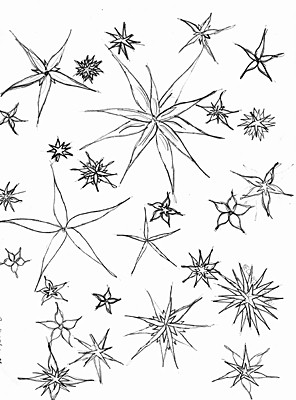All Nonfiction
- Bullying
- Books
- Academic
- Author Interviews
- Celebrity interviews
- College Articles
- College Essays
- Educator of the Year
- Heroes
- Interviews
- Memoir
- Personal Experience
- Sports
- Travel & Culture
All Opinions
- Bullying
- Current Events / Politics
- Discrimination
- Drugs / Alcohol / Smoking
- Entertainment / Celebrities
- Environment
- Love / Relationships
- Movies / Music / TV
- Pop Culture / Trends
- School / College
- Social Issues / Civics
- Spirituality / Religion
- Sports / Hobbies
All Hot Topics
- Bullying
- Community Service
- Environment
- Health
- Letters to the Editor
- Pride & Prejudice
- What Matters
- Back
Summer Guide
- Program Links
- Program Reviews
- Back
College Guide
- College Links
- College Reviews
- College Essays
- College Articles
- Back
"Night" by Elie Wiesel Socratic Seminar
“Why does Eliezer describe nearly everything that is consumed by the prisoners during his time in the concentration camps?”
Answer:
Eliezer and the other prisoners had been weakened down to the point where much of their world revolved around food. As a result, Wiesel also uses food to describe how he feels about the events taking place around him.
During Wiesel’s stay in Buna, several hangings occurred. The first person Eliezer and his friends ever saw get hanged was a boy from Warsaw. While the boy was being hanged, Juliek whispered to Eliezer, “This ceremony, will it be over soon? I’m hungry…” (62). This quote helps display the degree of the prisoner’s hunger. A young boy was being murdered right in front of them, yet all they could think about was their next meal. Why? Juliek’s thought process can be explained with Abraham Maslow’s Hierarchy of needs. According to the Hierarchy, a person must first have physiological things such as food, water, air, and sleep in order to be capable of thinking about others. Juliek and the others didn’t have access to most of the physiological things, causing them to be insensitive to the hanging. On the other hand, it can be easier to put problems aside and worry about small things instead. Perhaps Juliek was being impatient because he didn’t want to see the boy die. He might have used food as a distraction from the harsh reality of what was going on around him. Wiesel also shows the deep hunger of the prisoners during one of the camp’s marches. During the march, by passers and SS men would throw food at the prisoners. Eliezer describes the scene by saying: “Soon, pieces of bread were falling into the wagons from all sides. And the spectators observed these emaciated creatures ready to kill” (101). This scene shows the physical and mental toll that the Holocaust had on the Jews. Wiesel doesn’t describe the prisoners as humans in this quote. He refers to them as “creatures.” This is an example of anthropomorphism. Anthropomorphism is a literary device in which humans are compared to animals. Eliezer describes the Jews as non humans to emphasize how dysmorphic their bodies had become due to their lack of food. He also describes them as creatures rather than humans to show how uncivil they had become. The Jews were so anxious to get food, they didn’t even care as they harmed one another. Both their queer body shapes and horrid manners can be directly linked as one of the effects of starvation.
One day Eliezer describes his ration of food by saying, “That night, the soup tasted of corpses” (65). He said this immediately after witnessing a mass hanging ceremony. Eliezer’s description of his soup is both a metaphor and a symbol. Wiesel uses the metaphor comparing the taste of soup to corpses in order to show how Eliezer feels about the hangings. The “corpse taste” of the soup is a symbol for the murder of the boys. In this excerpt, along with many other quotes describing food, a correlation between what was going on in the concentration camp and the way the food tastes to Eliezer can be seen. Since hunger and taste are mostly psychological, things around us can easily influence the way we eat. In this particular case, Eliezer had just witnessed multiple deaths of young boys. Since he was upset, the soup tasted bad to him.
When Eliezer and his father first enter the concentration camp, their only concern is for each other. However, their relationship begins to slip away. While other factors may have contributed to their tattered bond, their hunger may have caused a lot of their issues. Food becomes a very prominent theme in Eliezer’s narrative. As the story goes on, Eliezer’s life becomes less about his father and more about food. Eliezer only mentions food from time to time in the beginning. However, he describes food very frequently after he has been in the concentration camps for awhile. While Eliezer may have loved his father, Eliezer was a growing boy. Both his body and young mind were so malnourished that he needed food more than he need his father. All humans have a drive to live. Eliezer’s drive to live was simply greater than his drive for his father. While he might have truly loved his dad, he couldn’t help but stray away from the path and focus on taking care of himself.

Similar Articles
JOIN THE DISCUSSION
This article has 0 comments.

The riveting memoir, Night, is full of symbols,archeatypes, and hidden meanings. Through reading this analysis, I hope that readers will have a deeper understanding of Night.